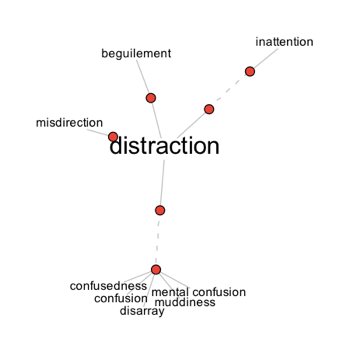How to reduce distractions and stay focused
Thursday, June 24th, 2010
How often do you get distracted during the day? With so many things going on in your mind, a myriad of tasks to do and devices continually alerting you of incoming emails, tweets, calls, texts or friend posts, how can you stay focused?
When your attention is divided between different things at the same time it can easily throw you off-course and can get overwhelming at times. Look at design or photography. The aim is to create one focal point to direct the viewer’s attention to it. As Garr Reynolds points out: “conflicting focal points would be a distraction” as it would introduce confusion and obscure clarity.
The attention we have for something diminishes with every distraction we follow, because attention is limited. The more you switch activities the more you divide and use your attention for those distractions and transitions. How much, do you think, is left to focus on something that is important to you.
Distractions also have a rewarding side. They can relieve worries or frustrations. Though this often only lasts for a short time and worries are back again. Anything that give us some relief from uncomfortable feelings or thoughts or anything that is just in front of us seems too attractive to ignore. We tend to easily get distracted. So, what can you do to stay focused and reduce distractions.
1. Switch off any communication devices & clean your desk
This is the easiest and most effective step you can take when you want to focus on a specific project. Our brain has the tendency to focus on what is right in front of us. So switching off your devices or removing any paper or notepads from your sight, will help you to reduce distraction. Make the project your focal point. Or make dinner with your family your focal point. Just switch off your mobile or remove anything that might remind you of the tasks you still have to do.
2. Take a break
Regularly take a break from what you are doing. The key is that you do that consciously. Get up every 30 minutes, have a stretch, a small walk or learn to juggle balls.
3. Write things down
Every time you have an idea, or remember a task you need to do write it down. That way it can’t distract you anymore, as you don’t need to use any brain power to remember. When you have finished your project, you can go back to your notes and then decide if there is anything on there you need to do right now. If not, just leave it there.
4. Become aware of your internal distractions
One of the most effective ways to reduce distraction is to get to know your internal thoughts. This is a more difficult step but the most rewarding. The more you know your thoughts or your feelings in any given situation the better you can stop yourself following any urge (“I need to get that cup of coffee”). The point is that you need to inhibit the actions fast, in under half a second, which in some studies is the time between noticing an urge and the urge taking over.
So, how can you become more aware what is going on inside you:
- - Become a curious observer.
- Stop what you are doing and take a few breaths.
- Notice your thoughts, feelings or bodily sensations that are coming up for you right now. Say them out loud or write them down. This is helpful especially when you just start out doing this.
Do this a few times a day over the next two weeks. It seems difficult in the beginning but the more you practice the easier it gets. Observing what is coming up for you will become an automatic behaviour and it will help you to identify distractions and stay focused.







